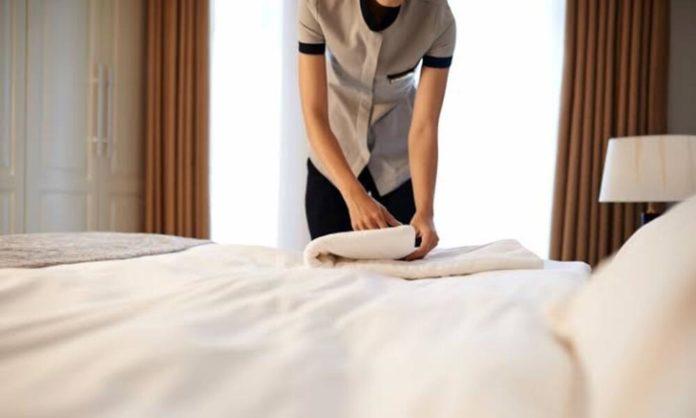The cleanliness of a hotel room can vary depending on the specific hotel, its standards for housekeeping, and the diligence of its staff. However, most hotels have established procedures for cleaning and sanitizing rooms between guest stays, including changing the bed linens, cleaning the bathroom, vacuuming or sweeping the floors, and wiping down surfaces such as tables, counters, and nightstands.
That being said, it’s important to note that hotel rooms are shared spaces that are used by many people, and they can harbor germs and bacteria despite being properly cleaned and disinfected. Some studies have found that hotel room surfaces, such as TV remotes and light switches, can be particularly high in bacteria.
Dirt & Grime Found In Hotel Rooms
Hotel rooms are high-traffic areas that are frequently touched by multiple guests. As a result, they can harbor germs and bacteria that can lead to illness if not properly disinfected. Even if you have managed to disinfect the buttons and switches, back-and-forth movement inside and outside the rooms can only keep the bacteria at bay for a limited time.

Read More: Airlines That Have The Most Luxurious Economy Seats
Bathrooms in hotels are another source of bacteria and viruses, especially if they are not properly cleaned and disinfected. Mold, mildew, and soap scum can also accumulate in the shower, sink, and toilet. This can become a breeding ground for bacteria and can often lead to illnesses.
Hotel rooms can accumulate dust and dirt quickly, especially in hard-to-reach areas like under the bed or in corners. This can be exacerbated by poor ventilation or air conditioning systems. Dirty carpets and floors can trap most of the dust causing allergies and respiratory problems.
Bedbugs are another common problem in hotels, and they can easily infest your bedding and luggage. These blood-sucking insects are difficult to detect. Fortunately, bed bug bites are unlikely to give you a transmissible disease, but their bites can cause itching and allergic reactions.

Cleaning Protocols In Time Of COVID-19
Many hotels have implemented enhanced cleaning protocols in response to the COVID-19 pandemic. These may include more frequent cleaning of high-touch surfaces, such as door handles, light switches, and remote controls, as well as the use of disinfectants and other cleaning products that are effective against the virus.
In addition, hotels may use specialized cleaning equipment, such as ultraviolet (UV) lights or electrostatic sprayers, to sanitize surfaces and kill germs.
Read More: Samsung To Build ‘World’s Largest Chip Factory
Despite these measures, there is still a risk of germs and bacteria in hotel rooms, just as there is in any public space. It’s important to practice good hygiene habits, such as washing your hands frequently and using hand sanitizer, to reduce your risk of getting sick.
Stay tuned to Brandsynario for the latest news and updates.



































